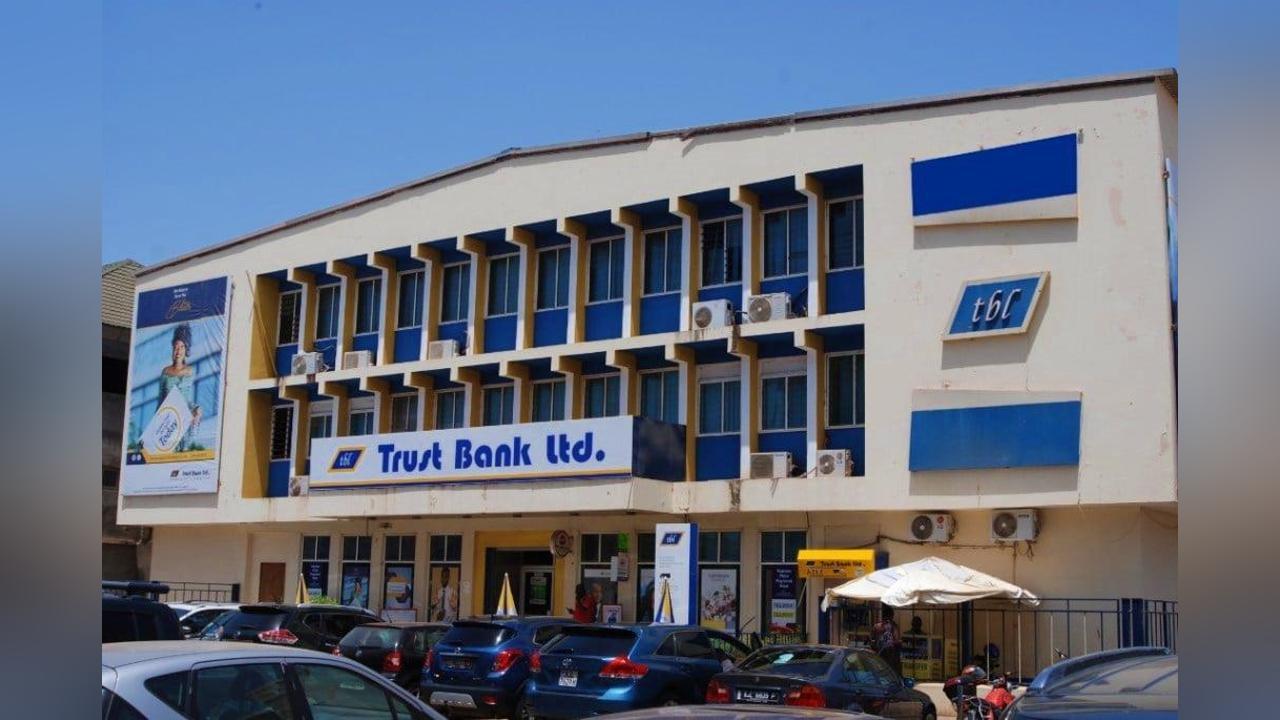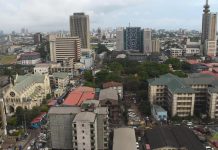Africa-Press – Gambia. Trust Bank Plc has reported impressive financial results for the third quarter ended September 30, 2025, with profit before tax surging 55% to D489.96 million compared to D316.13 million in the same period last year. The Gambian commercial bank’s profit for the period also jumped 55% to D357.67 million from D230.77 million, demonstrating resilient performance amid regional economic headwinds.
The bank’s net interest income, a key profitability metric for financial institutions, grew 22% to D819.57 million from D669.65 million in the prior year period. This growth was driven by a 28% increase in interest and similar income to D1.01 billion, though partially offset by interest expenses that rose 64% to D187.28 million, reflecting higher costs associated with attracting customer deposits in a competitive market environment.
Operating income reached D1.05 billion, up 15% from D914.25 million in the third quarter of 2024. However, this growth was tempered by a slight decline in net trading income, which fell 3% to D22.51 million, and a 33% drop in other operating income to D29.85 million. Net fee and commission income remained flat at D175.97 million compared to D176.66 million in the year ago period.
One particularly notable development was the bank’s net impairment reversal of D55.52 million on financial assets, a dramatic shift from the D60.48 million impairment loss recorded in the third quarter of 2024. This represents a 192% improvement and suggests stronger credit quality across the loan portfolio, with fewer customers defaulting on obligations or requiring provisions for potential losses.
Total assets stood at D14.32 billion as of September 30, 2025, up 13% from D12.70 billion a year earlier. This growth was supported by a 28% increase in trading assets to D4.47 billion, primarily reflecting higher holdings of treasury bills and Gambia government bonds. Loans and advances to customers grew 10% to D3.78 billion from D3.42 billion, demonstrating continued lending activity despite global economic uncertainty.
Customer deposits, the lifeblood of commercial banking operations, rose 12% to D12.31 billion from D10.99 billion in the third quarter of 2024. Savings accounts constituted the largest portion at D7.68 billion, while current accounts contributed D4.26 billion. Fixed deposits declined to D373.54 million from D603.93 million, possibly reflecting customers’ preference for more liquid savings options in uncertain economic times.
The bank’s stated capital doubled to D400 million from D200 million year on year, indicating either a capital injection or capitalisation of reserves to strengthen the institution’s financial foundation. This enhanced capital base positions Trust Bank to pursue growth opportunities while maintaining regulatory compliance with Central Bank of The Gambia requirements for capital adequacy.
Statutory reserves, however, decreased 28% to D287.05 million from D399.99 million, while income surplus increased 46% to D563.14 million from D385.89 million. The credit risk reserve surged 153% to D67.54 million from D26.69 million, reflecting management’s prudent approach to building buffers against potential loan losses despite the improved impairment picture in the current quarter.
Basic earnings per share climbed to 89 bututs from 58 bututs, a 55% increase that mirrors the profit growth and should please shareholders who’ve supported the bank through its growth trajectory. The bank paid dividends totaling D110 million during the nine month period, up from D90 million in the previous year, demonstrating commitment to returning value to shareholders while retaining sufficient capital for operations.
Trust Bank’s cash position remained robust at D4.43 billion, up marginally from D4.35 billion a year earlier. The composition shifted notably, with balances at the Central Bank of The Gambia increasing to D2.83 billion from D1.77 billion, while balances with local banks declined sharply to D55 million from D770 million. This reallocation suggests strategic decisions about liquidity management and potentially reflects changing interbank market conditions.
Investment securities experienced significant growth, with treasury bills reaching D2.08 billion from D1.85 billion and Gambia government bonds climbing to D2.38 billion from D1.63 billion. These holdings generate steady income through interest payments while providing liquidity that can be quickly converted to cash if needed. The bank’s trading assets category, which includes these securities, now represents roughly 31% of total assets.
Personnel expenses increased 11% to D268.62 million from D241.36 million, likely reflecting both inflationary pressures on salaries and potential headcount growth to support expanding operations. Other expenses jumped 18% to D273.47 million from D232.27 million, while depreciation and amortisation rose 12% to D71.38 million from D64.01 million.
Intangible assets surged 268% to D150.57 million from D40.91 million, suggesting significant investments in software, licenses, or technology infrastructure that don’t have physical form but enhance operational capabilities. This jump aligns with broader banking sector trends toward digital transformation and could position Trust Bank competitively as customers increasingly demand online and mobile banking services.
The bank added D150 million in Nawec bonds to its loan portfolio, a new item not present in the prior year. Nawec, the National Water and Electricity Company, represents exposure to Gambia’s utilities sector. While such bonds can offer attractive yields, they also concentrate risk in state owned enterprises whose performance depends partly on government policies and subsidy arrangements.
Operating cash flow from activities reached D2.84 billion, up substantially from D1.17 billion in the third quarter of 2024. This robust cash generation reflects strong underlying business performance and effective working capital management. The bank invested D121.21 million in property and equipment, slightly higher than D82.46 million in the prior year period, likely supporting branch network expansion or technology infrastructure upgrades.
Trust Bank Plc, founded in 1997 by private investors, acquired the assets and liabilities of the defunct Meridian Biao Bank at inception. Today, it ranks among The Gambia’s largest commercial banks by both asset size and branch network, serving retail and business customers across the country. The bank has over 1,000 shareholders, with the largest being the Social Security and Housing Finance Corporation of The Gambia and DataBank of Ghana.
Listed on the Ghana Stock Exchange since 2002, Trust Bank’s cross border presence reflects West Africa’s integrated financial markets where institutions increasingly operate regionally rather than just within single countries. This listing provides access to Ghanaian capital markets while maintaining operational focus on The Gambian banking sector.
The third quarter results arrive as The Gambia, like many African nations, navigates complex economic conditions including currency pressures, inflation concerns, and the ongoing need to finance development while maintaining financial sector stability. Commercial banks play crucial roles in these environments, channeling savings into productive investments and providing payment systems that enable economic activity.
Trust Bank’s 55% profit growth significantly outpaces its 13% asset growth, indicating improving efficiency and profitability margins. The bank’s ability to grow earnings faster than its balance sheet suggests better asset utilization, improved pricing on loans and deposits, or successful cost management initiatives that extract more profit from each dalasi of assets deployed.
The dramatic improvement in impairment provisions particularly stands out. While a D55.52 million reversal of previous provisions boosts current profits, it raises questions about whether earlier provisions were overly conservative or current assessments might prove optimistic if economic conditions deteriorate. Bank analysts typically scrutinize such swings carefully, as loan quality ultimately determines long term banking profitability and stability.
Looking ahead, Trust Bank faces both opportunities and challenges common to West African banking. Opportunities include expanding financial inclusion as more Gambians gain access to formal banking services, growing trade finance as regional economic integration deepens, and potential for digital banking innovations that reduce costs while improving customer service. Challenges include maintaining asset quality if economic growth slows, managing interest rate margins in competitive deposit markets, and meeting increasingly stringent regulatory capital and reporting requirements.
The bank’s management, led by Managing Director Mrs Njilan Senghore and Director Mr Ansumana LN Touray, who signed the unaudited financial statements, emphasised that the documents contain no untrue statements, misleading facts, or omissions of material information to the best of their knowledge. This declaration provides accountability while acknowledging the statements remain unaudited and subject to final year-end review.
For investors tracking Trust Bank’s performance, the third quarter results suggest momentum heading into the final quarter of 2025. Whether this performance proves sustainable depends on factors including loan portfolio quality, competitive dynamics in The Gambian banking sector, macroeconomic conditions affecting customers’ ability to service debts, and the bank’s success in controlling costs while growing revenues.
For More News And Analysis About Gambia Follow Africa-Press






